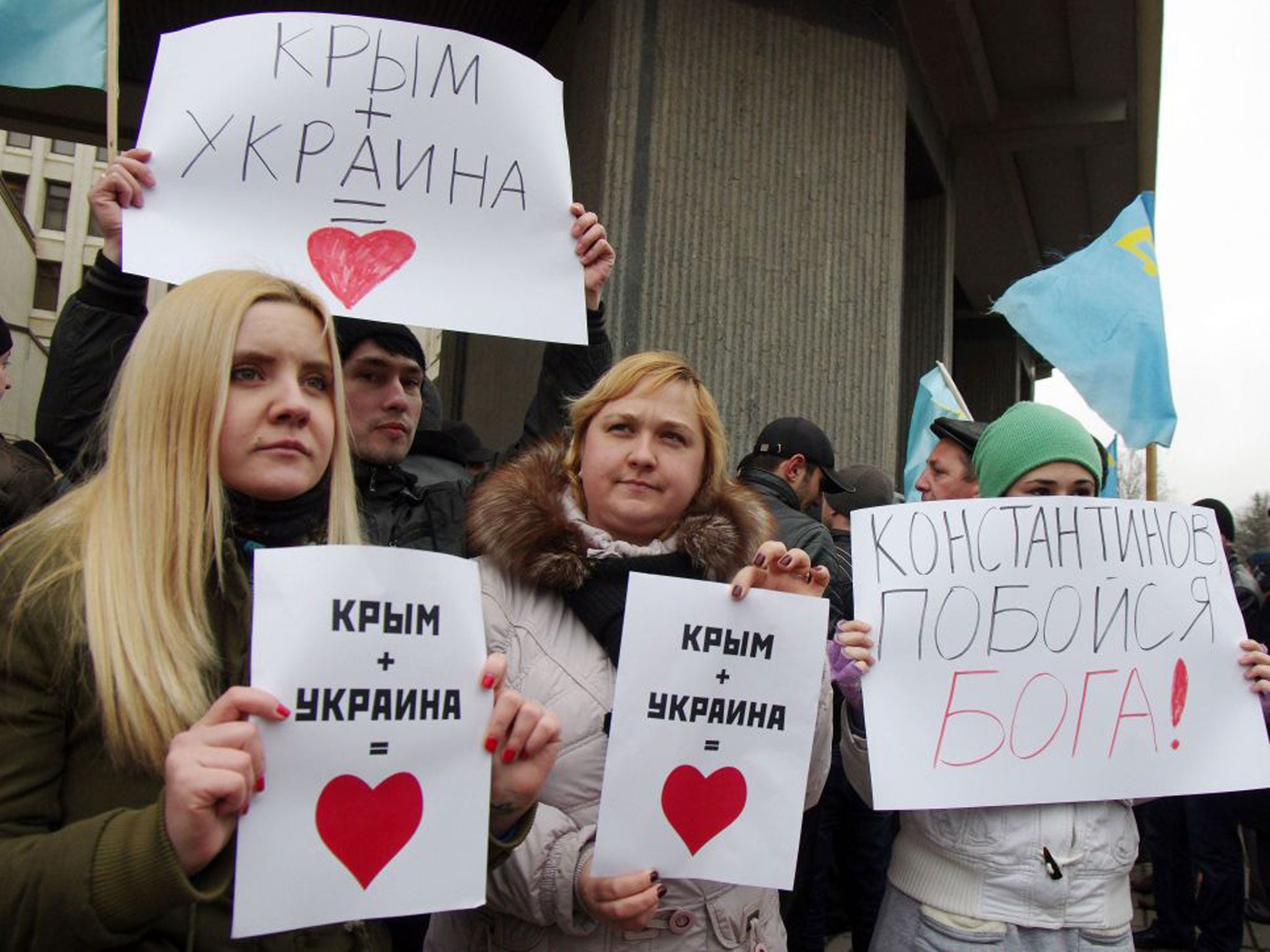Unlikely odds of a Russia-Crimea reunification
The new government in Kiev is extremely unlikely to do anything to directly provoke the Kremlin


There was never the slightest doubt that Crimea was the likeliest flashpoint of any confrontation between a new and broadly pro-Western government in Kiev and Russia. It is a measure of the gravity of Ukraine’s crisis that such tensions have flared so starkly and so soon.
If historically the east of the country, largely Russo-phone and home of much of Ukraine’s heavy industry, feels close to Moscow, these links pale beside those between Russia and the Crimean peninsula. If Russian and Ukrainian history are entwined, as is rightly said, then nowhere is that truer than Crimea.
Between the 18th and 20th centuries, the peninsula belonged to the Russian empire, particularly appreciated by the tsars and Russian nobility on account of its Mediterranean climate. The Crimean War, between 1853 and 1856, essentially an effort of the major West European powers to “contain” Russia as the Ottoman Empire declined, is also etched into Russia’s historical memory.
Long after the emergence of the Soviet Union, Crimea remained part of the Russian federation. Only in 1954 did the Soviet leader Nikita Khrushchev (himself a Ukrainian) hand it over from Russia to the sister Socialist Republic of Ukraine. And even now Sevastopol, scene of some of the heaviest fighting of the Crimean War, is headquarters of Russia’s Black Sea Fleet, strategically crucial for a Russian naval presence in the Mediterranean and beyond. That lease had been extended by Ukraine’s ousted pro-Russian President Viktor Yanukovych until 2042.
Despite a slight decline since Ukrainian independence in 1991, ethnic Russians remain a majority in Crimea, with 58 per cent of the population according to a 2001 census. The peninsula’s status as an autonomous republic within Ukraine, with its own constitution, recognises this reality.
Many earlier European wars began on the pretext of the aggressor power – Germans in the Second World War, Serbs and Croats in the Balkan Wars of the 1990s, and most recently Russia in its 2008 incursion into another former Soviet republic, Georgia – stepping in to “protect” supposedly threatened ethnic minorities.
Crimea is well qualified to become another example, and events – at least on the face of things – suggest it could be, with the Russian government denouncing the protesters who toppled Mr Yanukovych as “mutineers” and “terrorists”, and crowds waving Russian flags taking to the streets of Simferol.
President Vladimir Putin meanwhile, who as Prime Minister masterminded the 2008 war, is following the usual script of big-power muscle flexing. He has ordered a sudden exercise of 150,000 troops in western Russia, the part of the country that borders Ukraine. A quite normal procedure to test combat readiness and one that, while unannounced, had long been planned, according to Kremlin spokesmen. It has absolutely nothing, they add, to do with events in Ukraine. Of course.
Any “merger” or “re-unification” of Russia and Crimea would moreover be pretty straightfoward geographically. The two are separated by the mere 2.5 mile-wide strait that divides the Black Sea from the Sea of Azov, while Crimea can also be easily reached through territory in eastern Ukraine historically sympathetic to Russia.
But there are strong reasons events may not come to this. The new government in Kiev is extremely unlikely to do anything to directly provoke the Kremlin, for instance by demanding the Black Sea Fleet’s withdrawal from Sevastopol. President Putin may also think twice. For one thing, Ukraine with its 46 million people is a very different proposition from tiny Georgia. And while Russians are a majority in Crimea, there are also significant Ukrainian and Crimean Tatar groups (24 per cent and 12 per cent) who have made common cause against any Russian intervention.

Join our commenting forum
Join thought-provoking conversations, follow other Independent readers and see their replies